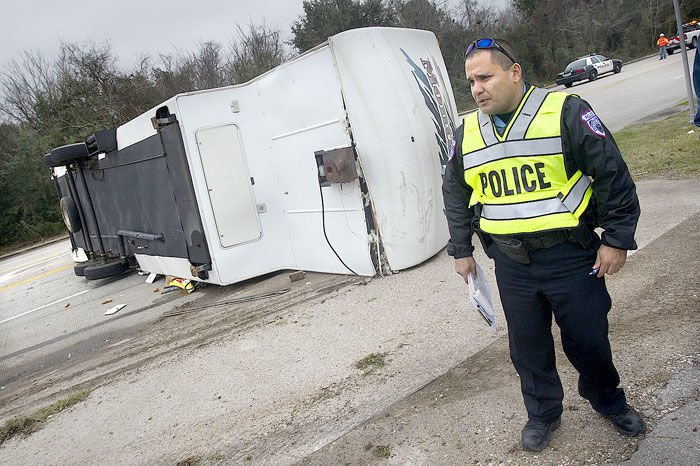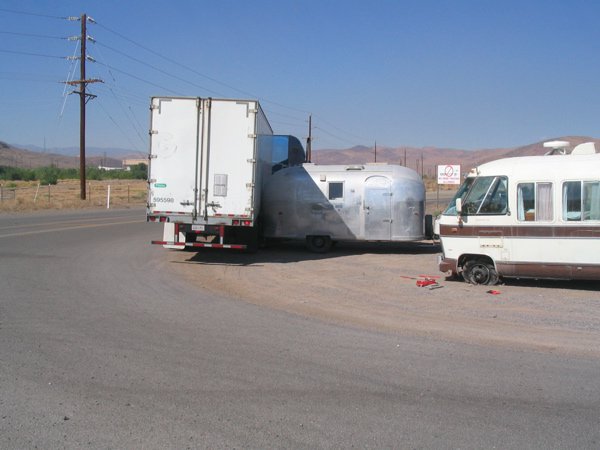This RV accident scene in Galveston, Texas, is a scary sight but if you’re like most drivers, you’re probably thinking that this could never happen to you.
After all, you understand RV handling and maneuvering, you know how to drive without crashing your RV into a house, and so far you’ve managed to get from Point A to Point B without major incidents, right?
But did you know that the leading causes of RV accident and mishaps on the road don’t necessarily have to do with your driving, but everything to do with how well maintained your RV is?
- From worn out, sticky brakes that overheat and catch fire while in motion
- To RV tires past their prime
- To propane system leaks . .
Poorly maintained homes on wheels harbor many different opportunities to create tragedy on the open road. RV driving schools are a great investment because they don’t just tell you how to drive, they tell you how to be a safer, more responsible RVer who knows how to avoid tragedies in the first place.
Most RVers like us don’t possess a special certification to drive our heavy machines. However doesn’t it seem strange to you that professional truck drivers must have a license to drive their massive vehicles, but licensed driver can head to their nearest RV dealer, buy a new rig and head out onto the highway without any specialized instruction?
Driving a RV is hard, tiring work sometimes. To be up to the challenge, you must have the mental and physical stamina to travel wisely and safely when at the wheel of your RV. When we get older and our physical and mental fitness declines, it only makes sense that if we want to remain on the road we should periodically get evaluated by professional RV driving instructors to ensure that we’re doing all we can to be safe RV drivers.
As travelers there are no excuses to avoid receiving RV driving instruction. Even if one isn’t offered in your hometown, you can always pack up the RV and head to the closest learning experience. A number of RV driving schools offer many different ways of receiving instruction, from private lessons to classroom settings to seminars at RV rallies. Some courses are one day long while others are weekend intensives.
Here’s just a sampling of what you can learn in RV driving courses like the two-day seminars offered by RVSchool.com:
- Pre-trip Inspection
- Mirrors – proper adjustment and use
- Brakes – testing and safe use – Jake or Exhaust
- Backing – how to back straight or into a RV site
- Negotiating corners including “swing out”
- Driving – in a city, on a freeway, or in mountains
- Gas stations – which ones and protocol
- GPS – how to use and safety features
- Campground maneuvering
- So you have a big vehicle – courtesies
- Instructor George Lane management – Staying in your lane
- On and off ramps
- Proper lane changing
- How to properly go up hills
- Safe braking down hills
- Defensive driving
As a bonus, once you complete a RV driving course, you may be eligible for driver discounts on your RV insurance policy from companies like AARP and AAA.
Don’t wait to be surprised by a RV accident. Take RV safety into your own hands and educate yourself about safer ways to travel in your home on wheels.



It would be helpful to have links to driving schools.